Education Journey
Enkindle supports students’ educational journey through meaningful and flexible experiences.
Our students, teachers and families are encouraged to work collaboratively within our community.
Our Curriculum
At Enkindle Village School, we use the Australian National Curriculum as the basis for our education, ensuring that all students are in line with their peers across the country.
As a school that values community and innovation, our aim is to remain flexible to continue to meet the needs and wants of our local community for decades to come. Through our democratic nature, we have the ability to draw on the best aspects of many different methods of education and to implement them in an effective and seamless way.
Our Curriculum encompasses our values of Autonomy, Curiosity, and Joy. Much of our learning is hands-on and play based as we believe what we learn in joy, we remember. Our students are not in competition with each other. Each student focuses on their own learning needs and development. We don’t use rewards, bribery or punishment but aim to instil a natural love of learning in our students.
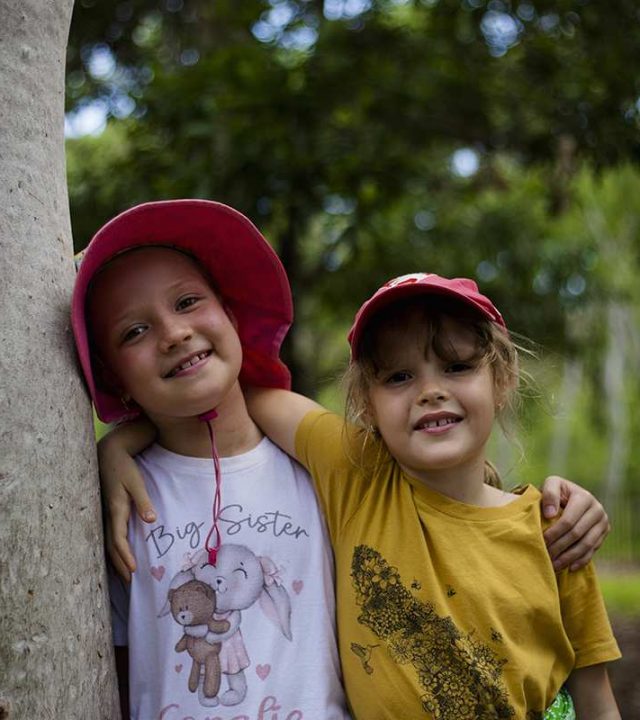
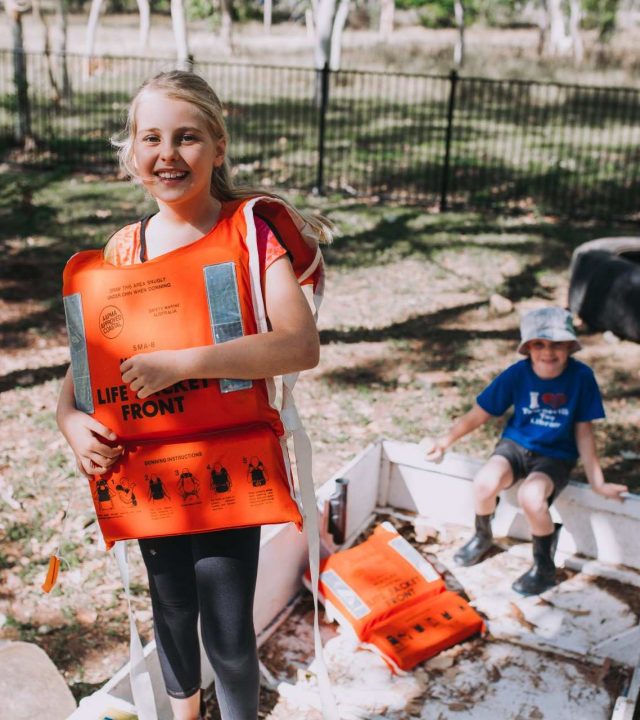
As 21st Century learners our students are bombarded with a wealth of content at their fingertips. We instead focus on the development of skills that allow them to become successful learners across all content areas. The rapid change in technology we see will require people who show:
- Cognitive flexibility and the ability to adapt to change and conceptualise complex multiple ideas all at once
- Digital literacy and computational thinking and the ability to adapt to changing technologies; some of which haven’t even been invented yet
- Judgement and decision-making skills
- Emotional and social intelligence
- Creative and innovative mindset
- The ability to work with others
We encourage the development of these skills through multi-age, integrated project-based work that links to real-life concepts. Our students are given responsibility for decision making at Enkindle around learning, behaviour and the day to day operations of the school. This freedom and choice are balanced with responsibility. Our students help with aspects of the school such as cleaning, gardening, maintenance and they serve on the justice committee to help resolve playground or classroom issues using restorative justice practices.
Connection is essential to allow students to understand their part in both our school and wider communities. We encourage guest speakers and connections with our community to expand our student’s knowledge of the world around them and encourage them to become valuable contributors to society.
Our integrated units are based around a real-world, macro concept such as ‘Sustainability’ or ‘Change’ which allows our students to become fully immersed an engaged in their learning and to see the many connections, and skills that can be transferred, between the learning areas.
Our learning focuses are:
English
Maths
Science
History and Social Sciences (HASS)
Design and Technologies
The Arts
Japanese
Health and Physical Sciences (HPE)
The Enkindle Difference
We use the resources that we already have around us so that we can invest more into our amazing teachers and keep our staff-student ratio as low as possible. Our learning is purposeful, and we practice real world learning as much as we can, as it is the most powerful for students.
Here are some of the ways that Enkindle Village School is unique:
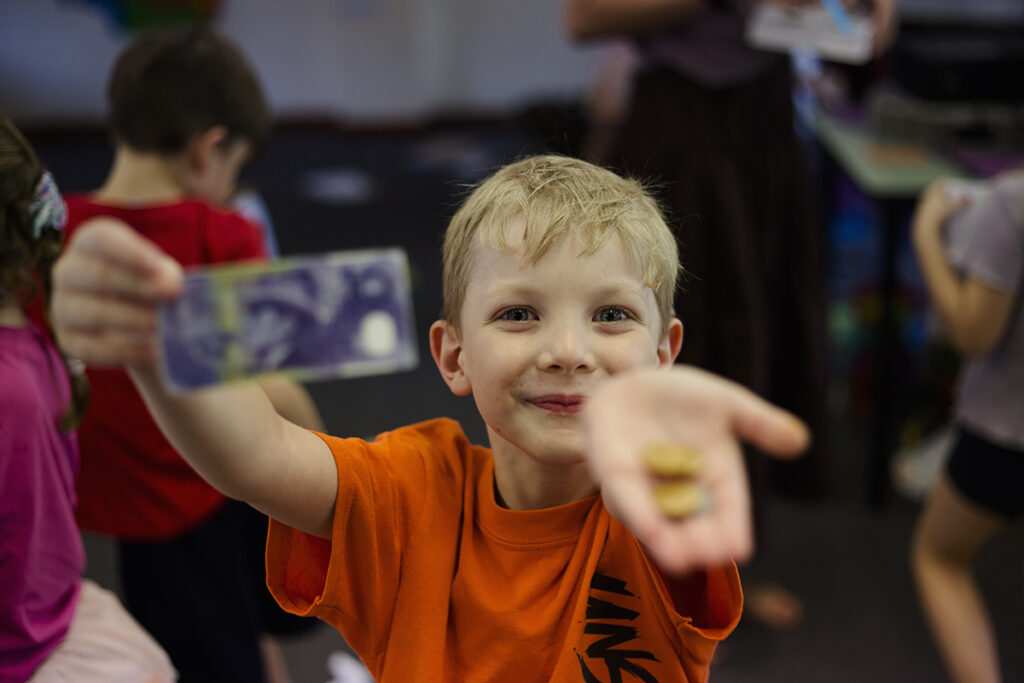
You won’t see:
- Year level teaching which is the same for every student regardless of their needs
- The overuse of exams, tests and worksheets as a way of measuring student’s success
- Traditional school infrastructure, facilities and resources

You will see:
- Teachers and staff having open, honest and often challenging conversations with students
- A focus on the whole child as well as a strong academic focus
- Students being given the freedom to make choices and mistakes
- Students playing in physical ways including climbing and getting dirty
- Students helping with daily jobs including cleaning, gardening, cooking, fixing and using equipment such as tools and cooking equipment
- Students interacting with the world around them including greeting and interacting with adults, helping with school tours, engaging in undirected play, climbing trees etc.
- Students being responsible for their own belongings
- Physical contact. We are a tactile school and will hug students who need it, high-five and play rambunctious games.
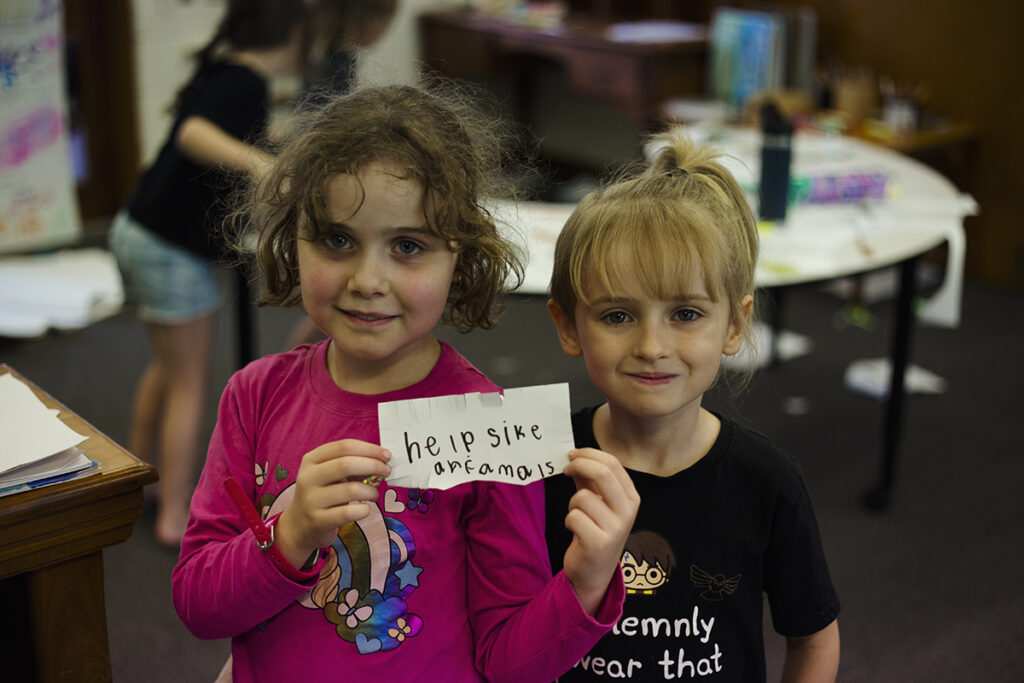
We seek your support to help your child become a valued member of the school community by:
- Being 100% sure of your decision as a family to be a part of Enkindle Village School
- Providing a home environment that actively supports your child to become an autonomous learner
- Supporting the teaching team with their requests
- Being respectful about school decisions
- Providing nutritional food, quality family time and an active outdoor home life
Democratic Schooling
IDEC, the International Democratic Education Conference, described what it means to be a democratic school:
“A Democratic School is a school which is, in some capacity, self-governing, with each community member having influence on decisions and outcomes. A contrast might be made with more ‘autocratic’ school structures, in which power and authority are concentrated in the teachers and adult administrators. In democratic educational philosophy, students, including and especially children, are seen as active participants in their own learning and their environment. Each student’s voice is given weight in decision-making both personal — for instance, the direction of his or her own education — and communal — the rules and adjudications by which the school functions as a whole.” – Andy Holloway
Learning through play. A review of the evidence – Jennifer Zosh et al
To really learn, our children need the power of play – Pasi Sahlberg, The Wallstreet Journal
Student outcomes and natural schooling- pathways from evidence to impact report – Plymouth University, UK (A lack of outdoor learning is creating an urgent social problem in children, affecting their empathy, creativity, and innovation.)
A nice summary of what we mean by emergent curriculum – Child & Nature Alliance of Canada
This article talks about how unrestricted outdoor play heals children.
Parents, it’s time to get out of the way and just let your kids play – Washington Post
In an Age of Robots, Schools are Teaching Our Children to be Redundant – The Guardian
Child’s Play is Good for All of Us – NY Times
Kids Should Play Outside 3h per Day – Huffington Post
Ten Obvious Truths We Shouldn’t Be Ignoring – Alfie Kohn
Children Educate Themselves – Psychology Today
Play: The Four Letter Word in Primary School – Longworth Education
www.idenetwork.org
For more information about democratic and free schools try this site.
How to Escape Education’s Death Valley – Sir Ken Robinson
Bring on the Learning Revolution – Sir Ken Robinson
Do Schools Kill Creativity – Sir Ken Robinson
Professor Welby Ings talks in this TV interview about how our schools are too focused with assessments and structure and how that stifles innovation and creativity.
Disobedient Teaching: Surviving and creating change in education – Welby Ings
The Sacred Urge to Play – Pennie Brownlee
A Free Range Childhood: Self-Regulation at Summerhill School – Matthew Appleton
The Lives of Children – George Dennison
Deschooling Our Lives – Matt Hern
Summerhill School: A New View of Childhood – A.S. Neill
Freedom To Learn – Carl Rogers
Dumbing Us Down – John Taylor Gatto
Teacher – Sylvia Ashton-Warner
Nonviolent Communication: A Language of Compassion – Marshall B. Rosenberg, Ph.D.
Let the Children Play: How More Play Will Save Our Schools and Help Children Thrive – Pasi Sahlberg
How Children Learn – John Holt
